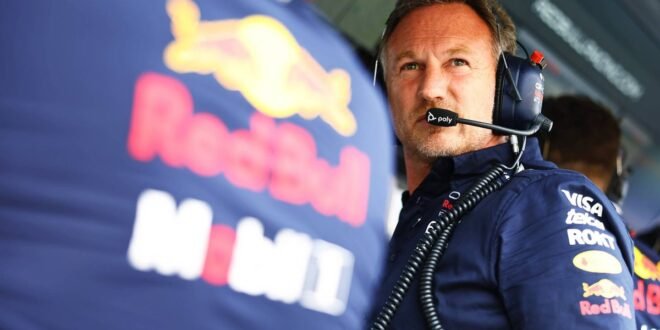The Evolution of Leadership in Formula 1
In the world of sports, there is a common saying that you’re only as good as your last game. This sentiment holds true across various disciplines, but it’s particularly evident in Formula 1, where even the most successful managers can face swift consequences if their team’s performance falters. Christian Horner’s recent dismissal after over two decades at the helm of Red Bull Racing exemplifies this shift, highlighting what could be termed the “footballification” of F1.
Horner, who led Red Bull to six constructors’ championships and eight drivers’ titles, was let go despite his long tenure. His contract was set to expire in 2030, but a combination of personal scandals, internal conflicts, and inconsistent on-track performance led to his abrupt exit. While buying out his contract early may have been costly, it signals that key stakeholders no longer supported him, marking a significant change in the dynamics of leadership within the sport.
A Shift in Ownership and Management
For much of the first four decades of the World Championship, teams were typically owned and managed by individuals whose names were synonymous with the team itself. Figures like Enzo Ferrari, Frank Williams, Ken Tyrrell, and others were deeply involved in the day-to-day operations of their respective teams. However, as F1 expanded commercially, the landscape began to change.
Manufacturers became more involved, leading to the transformation of teams into extensions of larger corporations. This shift brought in professional managers who operated within complex corporate structures. Toto Wolff stands out as an exception, being both a team principal and a shareholder of Mercedes GP.
While past team bosses faced the consequences of failure personally, today’s leaders often operate within a more bureaucratic framework. For example, Ron Dennis, who revitalized McLaren in the 1980s, was eventually ousted by shareholders after several years of underperformance. This pattern mirrors the fate of Christian Horner, who built a successful racing team before joining Red Bull Racing.
Lessons from the Past
Horner’s journey shares similarities with that of Ron Dennis. Both started with limited resources and grew their teams through strategic decisions and key hires. Horner, for instance, took control of Red Bull Racing after acquiring Jaguar Racing, a struggling team. With a substantial budget, he recruited Adrian Newey, who played a crucial role in the team’s success.
However, just as Dennis fell out with John Barnard, Horner also experienced a falling-out with Newey. This conflict, along with internal power struggles, contributed to the current challenges facing Red Bull Racing. The company’s ownership structure, with the Yoovidhya family holding 51% and Mark Mateschitz owning the remaining 49%, has added another layer of complexity.
Power Struggles and Internal Conflicts
After the death of Dietrich Mateschitz, a power struggle emerged between different factions within the company. Horner’s relationship with Mateschitz Sr. was strained, particularly due to his resentment towards Helmut Marko, a key figure in the team. The tension escalated when Horner was accused of coercive behavior and sexual harassment, leading to leaks that exposed internal conflicts.
Max Verstappen and his father Jos remained loyal to Marko, signaling that they would follow him if he left. This dynamic ultimately led to Horner losing support from the Yoovidhya family, further complicating his position.
Challenges and Future Outlook
Over the past 18 months, Red Bull has struggled to maintain its dominance on the track. Issues such as car development, operational blunders, and dissatisfaction among drivers have compounded the team’s problems. Replacing Sergio Perez with Liam Lawson and then Yuki Tsunoda has not yielded the desired results, reinforcing the adage that repeating failed actions leads to similar outcomes.
As Laurent Mekies steps into the role of new Red Bull F1 boss, the challenge lies in restoring order and avoiding past mistakes. Insiders suggest that Horner was overburdened by taking on multiple roles, which affected his ability to lead effectively. The success of Red Bull in the past was a result of collective effort, and now the team must rebuild from the ground up.
In the ever-evolving world of Formula 1, leaders come and go, reflecting the nature of a machine where individual contributions are essential but replaceable. As Mekies takes the reins, the future of Red Bull Racing remains uncertain, but the lessons learned from past experiences will undoubtedly shape its path forward.
 Info Malang Raya Its All About World News
Info Malang Raya Its All About World News



